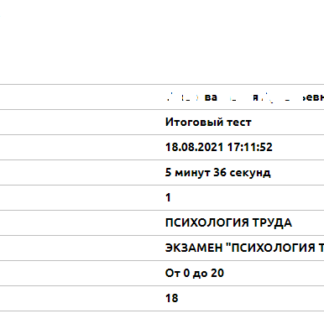Описание
I COURSE
CONTROL WORK N 5
SOMETHING, ANYTHING, NOTHING,
SOMEBODY, ANYBODY, NOBODY;
A LOT OF, MANY, MUCH, FEW, A FEW, LITTLE, A LITTLE;
MODAL VERBS: CAN (ABILITY, POSSIBILITY, PERMISSION),
MAY (PERMISSION), MUST (OBLIGATION)
I. Fill in the gaps with proper indefinite pronouns:
a) something, anything, nothing, somebody, anybody, nobody
1. There is … in the bag. 2. There isn’t … in the room. 3. Give me … to read. 4. Has … got a red pencil? 5. Is there … new? 6. I can see … at the window. 7. … can answer the question. 8. – Where is the book? – It’s on the table. –But there is … there. 9. Is … absent today?
b) a lot of, many, much, few, a few, little, a little
1. Hurry up! We have very … time. 2. Don’t make so … noise. 3. There are … tape recorders, but very … TV sets. 4. Is there … or … snow in England in winter? 5. Are there … mistakes in my dictation? 6. – There are only … pictures in this book. 7. There is still … sugar in my tea. May I ask for some more? 8. Can you describe the situation in … words? 9. We haven’t got … pear-trees in our garden, but there are … apple trees. 10. How … water is there in the tea-pot? – Very … .
II. Translate into English.
1. Сколько кинотеатров в вашем городе? – Есть несколько. Два или три. 2. У вас есть мел? Да, есть немного. 3. У них слишком много мебели в гостиной. 4. Дайте мне что-нибудь почитать. 5. В вазе ничего нет. 6. Сколько у него сестер? – У него нет сестер. 7. В квартире никого нет. 8. На столе что-то лежит. 9. В конторе кто-нибудь есть?
III. Respond to the following questions as in the example.
Example: – Can you swim and dive? – I can swim, but I can’t dive.
1. Can you knit and sew? 2. Can the baby walk and run? 3. Can she dance and sing? 4. Can he read and write? 5. Can you draw and paint?
IV. Ask for additional information as in the example.
Example: – I can’t play cricket. (What games). – What games can you play?
1. You can’t take all these books. (which books) 2. She can’t finish the work. (when) 3. You can’t keep the book long. (how long) 4. I can’t visit Peter tonight. (when) 5. We can’t stay at this hotel. (where)
V. Respond expressing solidarity as in the example.
Example: – Kate can type. (Betsy) – So can Betsy.
– Alice can’t type. (Lucy) – Neither can Lucy.
1. Robert can drive. (Jack) 2. Alex can’t dance. (Nick) 3. I can drive a car. (my brother) 4. Mike can’t draw. (Jane) 5. We can ski. (we) 6. She can’t cook. (her husband) 7. I can swim well. (Peter)
VI. Respond expressing surprise as in the examples.
Example: – I can’t swim. – Can’t you?
– Mike can swim well. – Can he?
1. I can play poker. 2. I can’t dance. 3. I can take shorthand. 4. I can’t cook. 5. I can do card tricks. 6. I can’t sew. 7. I can drive.
VII. Ask and give permission as in the example.
Example: – May I go out for a moment, please? – Yes, you may./Yes, please./ Please, do./Certainly.
Prompts: 1. open the window; 2. Listen to the record; 3. Switch on the radio; 4. Go home; 5. Borrow your pen; 6. Talk with you. 7. Come in.
VIII. Ask and deny permission as in the example.
Example: – May I smoke here? – Please, don’t/ I’m afraid not/ No, you mustn’t
Prompts: 1. use your car; 2. close the door; 3. borrow your umbrella; 4. go out; 5. take your dictionary; 6. cross the street now; 7. buy an ice-cream;
IX. Respond using the modal verb “must” to express obligation as in the examples.
Examples: A) – The suit is nice. (buy) – You must buy it.
B) – You’ve got a temperature. (go out) – You mustn’t go out.
A) 1. Bill is ill. (visit) 2. Jane is very busy. (help) 3. It’s 8.40. (go to school) 4. It’s 12 o’clock. (have lunch) 5. It’s late. (go to bed).
B) 1. It’s too cold. (stay out long) 2. He is very busy now. (speak to him) 3. There is a child in the room. (smoke) 4. It’s Peter’s textbook. (take) 5. You have much homework for tomorrow. (watch TV)
X. Give short answers to the following questions either positive or negative as in the example.
Example: – Must I help him? – Yes, you must./ No, you needn’t.
1. Must I wait for him? 2. Must she copy the text? 3. Must we go there today? 4. Must I send them an e-mail? 5. Must he type the documents? 6. Must they come at 5 sharp?
XI. Fill in the gaps with the proper modal verbs.
1. … I have you type-writer for a week, please? 2. … I help you? – No, you … 3. – I … type. I think you … learn typing. 4. – … I help Peter? – Yes, you … He … do the work himself. 5. – … I go out, Mum? – No, you … It’s too cold. 6. Jane … skate. – So … Mary.



